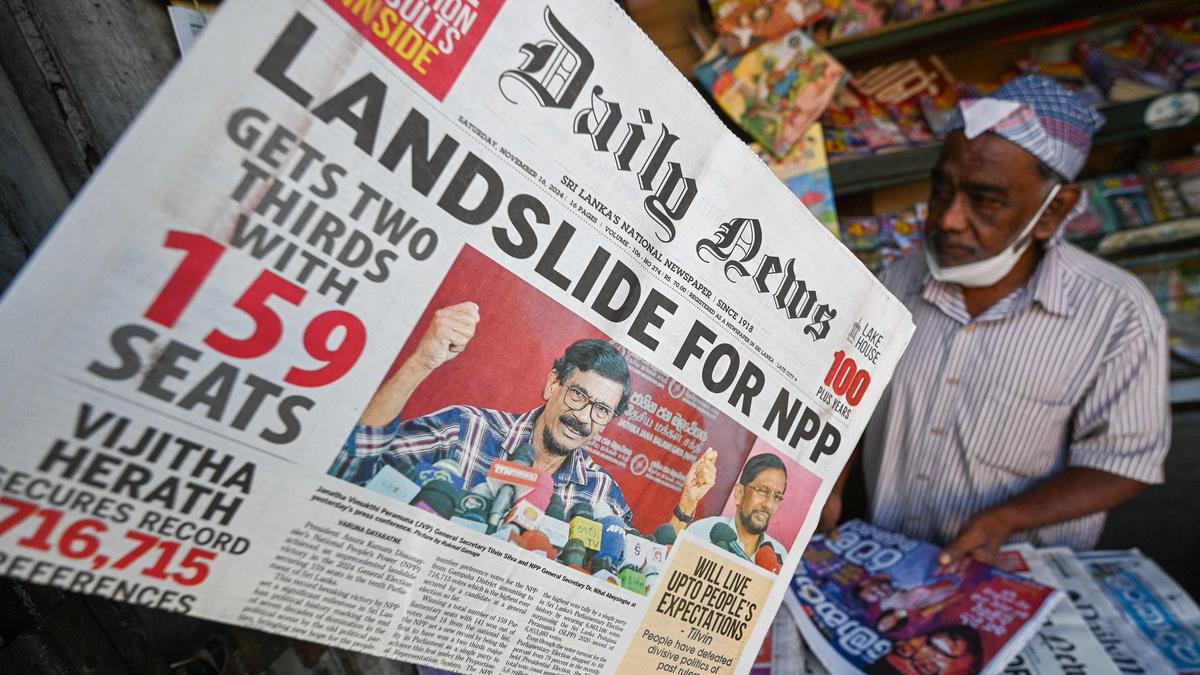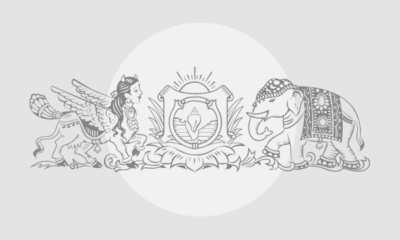Breaking News
An overturning of Sri Lanka’s old political order

The Sri Lankan parliamentary elections saw the National People’s Power (NPP), led by President Anura Kumara Dissanayake, achieve a landslide victory. This success was attributed to strategic planning, understanding public sentiment, and executing a smart election strategy. The election results indicated a clear rejection of the political status quo, with the NPP securing 159 seats and the main Opposition SJB reduced to 40 seats. Former ruling parties, including those of the Rajapaksas and Ranil Wickremesinghe, suffered significant losses.
The election outcome marked a significant shift in Sri Lanka’s political landscape, necessitating a departure from the traditional elite-serving policies. The NPP, now faced with high expectations, must deliver on its promises to avoid being displaced by polarizing right-wing forces. The historic election result has drawn comparisons to the political transformation witnessed in 1977, signaling a potential shift towards inclusive governance and economic reforms.
Notably, the NPP’s victory in the Northern Province, a stronghold of Tamil nationalist politics, highlighted a broader splintering of Tamil nationalist parties. The party’s success in this region underscored the failure of previous political entities to address the genuine needs of the Tamil population. The NPP’s mandate now includes addressing economic challenges, political reconciliation, and potentially amending the Constitution through its strong parliamentary majority.
As the new government prepares to tackle the economic crisis and promote political reconciliation, it faces both domestic and international challenges. The NPP’s victory signifies a significant opportunity for change, with the potential to reshape Sri Lanka’s political and economic landscape. The leadership of the NPP would be wise to heed the lessons of its leftist predecessors. The powerful United Front Government of the 1970s was decimated in the following election due to a combination of a global economic downturn and a capital strike by Western powers punishing the nation for aligning with the Non-Aligned Movement.
Sri Lanka is currently facing uncharted territory after defaulting on its external debt for the first time in history. The constraints of an International Monetary Fund program, with harsh austerity measures and debt restructuring favoring influential creditors, pose significant challenges. The entrenched bureaucracy within a pro-liberalization state system may hinder progress. The business elite in Colombo, aligned with Western interests, are exploiting the working class and seeking to undermine the new government whenever possible.
Above all, global powers such as India, China, and the United States, eager to seize Sri Lanka’s strategic assets, are likely to undermine this center-left administration to advance their own geopolitical agendas. The nation and its people have endured much turmoil in recent decades and deserve the opportunity to navigate their own democratic path out of the crisis.
At present, these major powers need not facilitate the country’s reconstruction. By relinquishing their cynical control and hegemonic tactics, and instead focusing on democratizing their own nations, they can empower Sri Lanka to progress independently.
Ahilan Kadirgamar, a political economist and Senior Lecturer at the University of Jaffna, Sri Lanka, authored this article.
Published – November 21, 2024 12:16 am IST
-

 Destination9 months ago
Destination9 months agoSingapore Airlines CEO set to join board of Air India, BA News, BA
-

 Breaking News10 months ago
Breaking News10 months agoCroatia to reintroduce compulsory military draft as regional tensions soar
-

 Gadgets4 months ago
Gadgets4 months agoSupernatural Season 16 Revival News, Cast, Plot and Release Date
-

 Tech News1 year ago
Tech News1 year agoBangladeshi police agents accused of selling citizens’ personal information on Telegram
-

 Productivity12 months ago
Productivity12 months agoHow Your Contact Center Can Become A Customer Engagement Center
-

 Gadgets4 weeks ago
Gadgets4 weeks agoFallout Season 2 Potential Release Date, Cast, Plot and News
-

 Breaking News10 months ago
Breaking News10 months agoBangladesh crisis: Refaat Ahmed sworn in as Bangladesh’s new chief justice
-

 Toys12 months ago
Toys12 months ago15 of the Best Trike & Tricycles Mums Recommend























